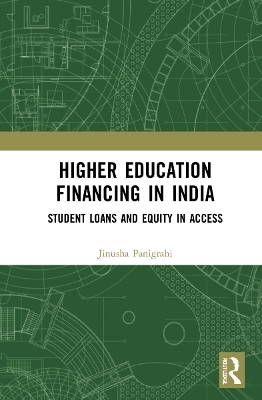
Higher Education Financing in India
Routledge India (Verlag)
978-1-032-26969-6 (ISBN)
This book critically examines the questions related to the access to and financing of higher education in India. The rapid expansion of knowledge economy in the neo-liberal era of globalisation has created an unprecedented demand for higher education, especially skill-based advanced learning. However, the inability of the government to meet the demand for public education, the massification of the higher education and the rapid privatisation of the education sector have now created concerns over financing education and ensuring its equitable access.
The volume discusses the challenges faced by aspiring students to meet the rising cost of higher education, as educational policies increasingly favour marketisation of higher education. It sheds light on several alternative and innovative methods of financing, with a focus on educational loans, to highlight how inequities and inequalities affect access to educational loans in countries like India. The book thus explores how this impacts students from the deprived/disadvantaged sections of the society who are unable to access courses and institutions of their choice, and therefore remain unsuitable to get absorbed in the evolving market economy.
An incisive read on the economics of education in India, this book will be useful for scholars and researchers of education, higher education, public policy, sociology, development studies, political science and governance, as well as for the policy-makers.
Jinusha Panigrahi is Assistant Professor in the Centre for Policy Research in Higher Education at the National Institute of Educational Planning and Administration, New Delhi, India. She holds a Ph.D. degree in Economics of Education from Jawaharlal Nehru University, New Delhi. She is the Co-Chair Person (2018–21 and 2021–24) of the Economics and Finance Education – Special Interest Group, Comparative International Education Society, United States of America. She has several years of experience in teaching and research. Jinusha’s research work lies in the areas of economics of education, financing of higher education, internationalisation, privatisation and private higher education. She is the co-editor of ‘India Higher Education Report 2018 on Financing of Higher Education’ (2019) and ‘Financing of Higher Education: Traditional approaches and Innovative Strategies’ (2022). Jinusha is the recipient of the prestigious International Visitor Leadership Program (IVLP) Award by the United States Department of State, Washington, DC, in 2018 for ‘Furthering USA-India Relationships in Higher Education’. She is also the recipient of the Central European University (CEU) summer school scholarship on ‘Innovative Financing for Education: Arguments, Options and implications’ in Budapest, Hungary, in 2016.
1. Introduction 2. Financing of Higher Education 3. Issues of Access and Choice in the Stage of Massification 4. Policy Trending towards Loan Financing as an Alternative 5. Experimenting with Other Innovative Methods of Financing 6. Conclusion
| Erscheinungsdatum | 15.06.2022 |
|---|---|
| Zusatzinfo | 11 Tables, black and white; 2 Line drawings, black and white; 2 Illustrations, black and white |
| Verlagsort | London |
| Sprache | englisch |
| Maße | 156 x 234 mm |
| Gewicht | 453 g |
| Themenwelt | Sozialwissenschaften ► Pädagogik ► Allgemeines / Lexika |
| Sozialwissenschaften ► Pädagogik ► Bildungstheorie | |
| Sozialwissenschaften ► Pädagogik ► Erwachsenenbildung | |
| Sozialwissenschaften ► Soziologie ► Spezielle Soziologien | |
| ISBN-10 | 1-032-26969-3 / 1032269693 |
| ISBN-13 | 978-1-032-26969-6 / 9781032269696 |
| Zustand | Neuware |
| Haben Sie eine Frage zum Produkt? |
aus dem Bereich


